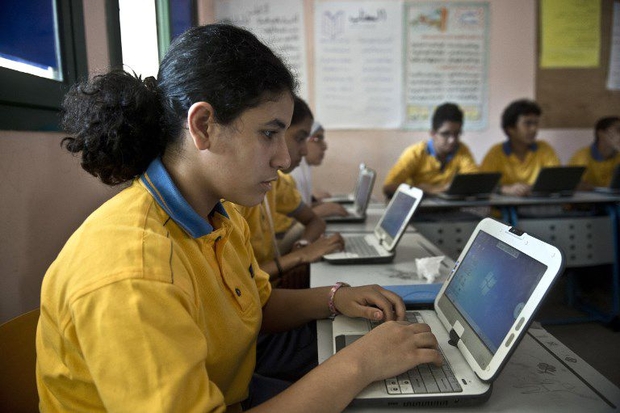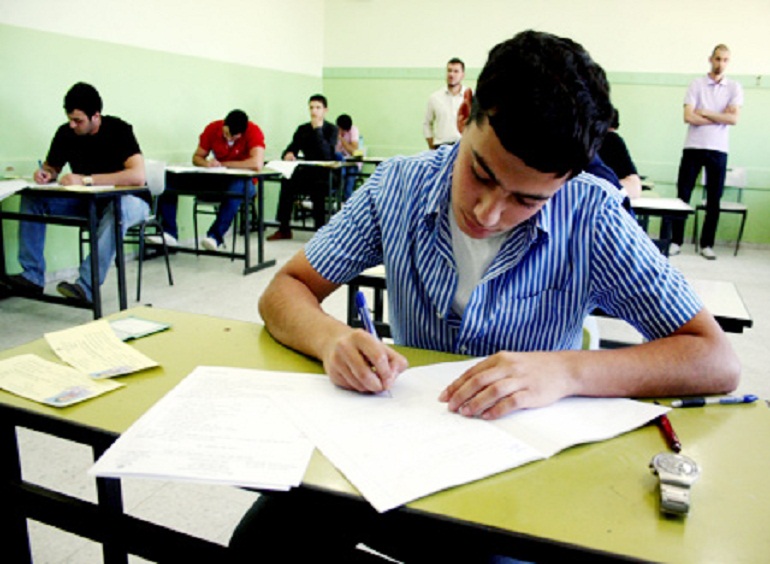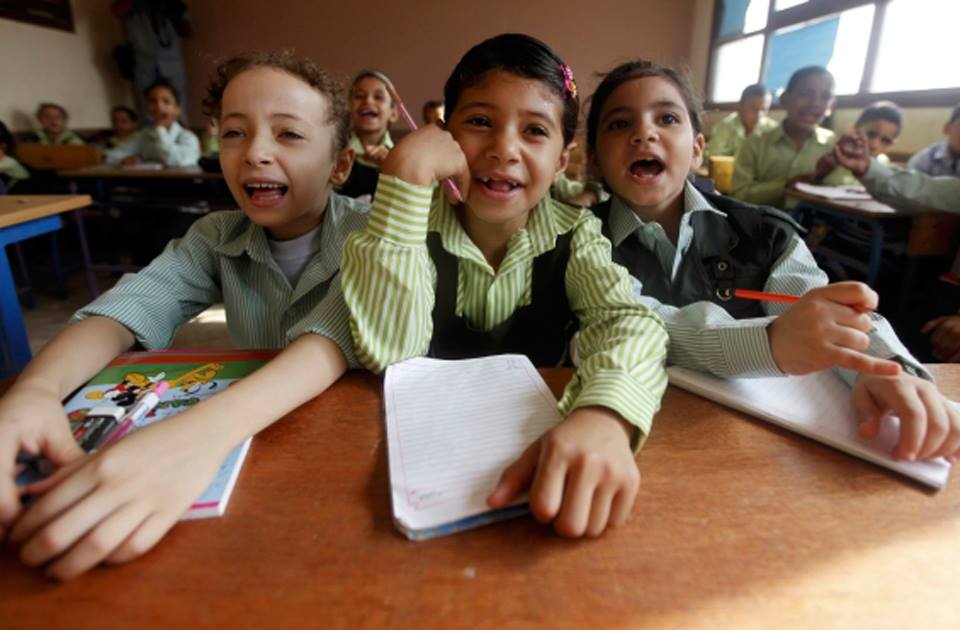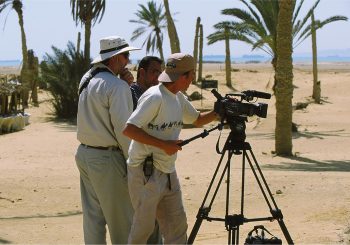In the session “Strategy for the Development of Education” at the Sixth National Conference for Youth held at Cairo University, Minister of Education Dr. Tarek Shawki outlined the features of the new educational system, which will be implemented in September 2018, beginning with kindergarten and primary school.
Dr Tarek Shawki highlighted that the new system aims to move away from the superficial approach to understanding and indoctrination to the development of important skills, problem solving and creativity.
He added that the goals of the new education system will be “know, work, live, and be” and the curriculum in primary schools will revolve around “who am I”.
Here are 7 important things to know about this new system.
1. There will be no exams starting from the first to the fourth grade
The students at primary school will move between these school years automatically without the risk of year repetition. There will also be awards and honors given to identify the skills the student has achieved. By fifth grade, examinations begin again.
2. Examinations will be at the school level, not national level
The Ministry of Education is changing the secondary school system by abolishing the unified national exam and replacing it with 12 examinations throughout the school year.
3. Old exams will be replaced by a digital system

To prevent manipulation of grades, there will be no more paper exams. Instead, the exam will be sent directly to the student’s digital device, and the result will be sent after completion of the exam.
4. Allow students to take a book with them to the exam
This aims to achieve the goal of comprehension rather than memorization which the Egyptian national educational system has been consistently accused of. Most students in public or semi-private schools resort to memorization whole chunks of answers that they have to use in their exams even if the answer is incorrect.
5. The problem of classroom density will be solved
Classrooms will be arranged in different forms such as circles to allow more interaction with the teacher and room for students to sit and benefit.
6. The new curriculum will be multidisciplinary
The aim of this is to emphasize the unity of all subjects, avoid repetition of concepts and the interrelationship between different branches of science. At the primary stage, Arabic and Japanese schools will teach their courses in Arabic ranging from mathematics, science, geography, history and the Arabic language. In the preparatory stage, the science and mathematics courses will be taught in English and a third language will be introduced.
7. The teacher is the cornerstone of the new education system
The Ministry is working on training 200,000 teachers in August and each teacher will receive a paper and a digital copy of “Teacher’s Guide” to explain the teaching method step by step. There will also be plans to increase salaries. Salaries for teachers, namely in public schools, are notoriously low. This has led to the emergence of ‘the private tutoring’ method of teaching which manifests itself through students actually learning from private courses rather than at schools, where teachers often withhold information so students would attend their tutoring lessons.








Comments (11)
[…] the Sixth National Conference for Youth held at Cairo University this July, Dr Tarek Shawky outlined the main features of the new education system which includes no exams from first to fourth grade […]
[…] July, the Minister of Education Dr. Tarek Shawki outlined the features of the new educational system, which will be implemented this month, beginning with kindergarten and primary […]